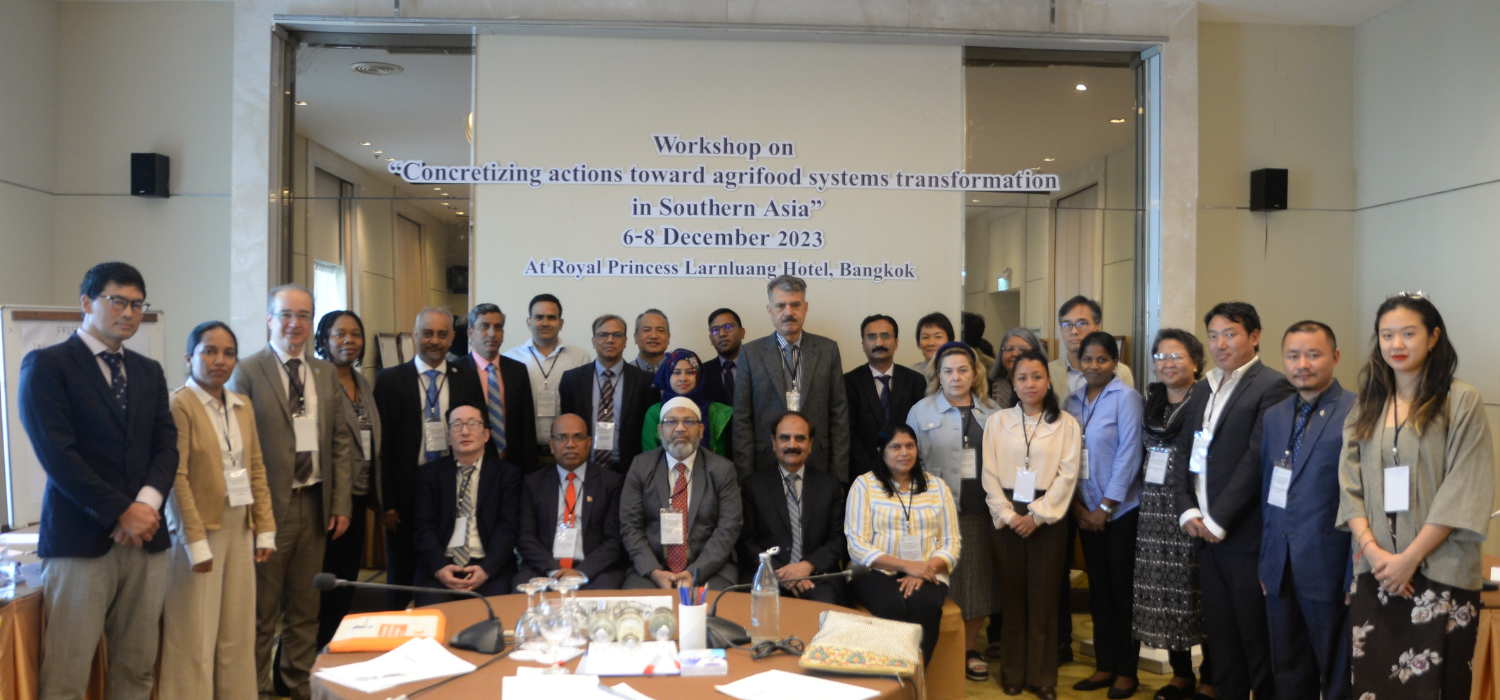SEED FUNDING JOINT PROGRAMMES
Egypt
Strengthening Sustainable and Resilient Food and Nutrition Systems in Egypt for SDG Acceleration




PROJECT TITLE | Strengthening Sustainable and Resilient Food and Nutrition Systems in Egypt for SDG Acceleration |
| Context | Egypt engaged actively in the 2021 Food Systems Summit process, convening a national dialogue and developing national pathways with recommended interventions for improving food security and nutrition by 2030. To enhance multi-sectorial coordination and spearhead the transformation process, the Government created a National Committee for Food and Nutrition Systems chaired by the Prime Minister and bringing together several ministries to coordinate joint actions. Strengthening coordination mechanisms, fostering multi-stakeholder partnerships, consolidating accountability structures, focusing on the availability of evidence, analysis, and data, are identified as key priorities to strengthen the food systems governance structure in Egypt. |
| PUNOs | WFP, FAO, UNICEF |
| Contribution to SDGs | SDG 2 Zero Hunger, SDG 3 Good Health and Well-being, 12 Responsible Consumption and Production. |
| Contribution to other SDG transitions | Climate, biodiversity, pollution |
| Duration | June 2024 – May 2025 |
| Expected financial leverage | $87,000 (PUNO co-financing) |
| Alignment with SG Call to Action | Policy integration; Food systems governance; Research, data, technology and innovation; Inclusive and participatory design; Private sector engagement |
| Outcomes | The JP contributes to strengthening policy and governance frameworks for food systems transformation and generating evidence and analysis on key dimensions of food systems to inform decision-making, supporting the work of the National Committee for Food and Nutrition Systems. The JP complements the government’s flagship program “Country Platform for the Nexus of Water, Food and Energy”, which provides a mechanism to mobilize climate finance and private investments. |
| Partners |
|
| Outputs |
|
Advancing agrifood systems transformation: Key insights from the FAO-UNEP workshop in Bangkok
South Asian countries join together to empower and collaborate for sustainable agrifood systems transformation.

In a concerted effort to address the imperative of sustainable agrifood systems, the Food and Agriculture Organization (FAO) Regional Office for Asia and the Pacific, in collaboration with the United Nations Environment Programme (UNEP) and with the active participation of the UN Food Systems Coordination Hub, recently convened a three-day workshop in Bangkok. The workshop, titled 'Concretizing Actions for Agrifood Systems Transformation in Selected South Asian Countries,' is part of a three-part series designed to articulate pragmatic strategies for the transformation of agrifood systems in select South Asian countries. The first workshop took place in November 2023, with the participation of Cambodia, Indonesia, Laos, Thailand, and Timor Leste, while the second installment included Bangladesh, Bhutan, Nepal, Pakistan and Sri Lanka.
The workshop brought together government representatives from diverse ministries in low- to middle-income countries, uniting them in a collective pursuit of empowerment, capacity building, and knowledge exchange. The overarching objective was to foster a collaborative environment conducive to shared learning and the development of actionable insights.
The workshop series featured a blend of technical presentations and interactive group exercises, with a focus on critical aspects of agrifood systems transformation, aligned to the Secretary-General Report and Call to Action at the UN Food Systems Summit +2 Stocktaking Moment (UNFSS+2). It included:
- National pathways analysis: Technical presentation on the analysis of the national food systems transformation pathways and alignment to the food systems approach, anchored in the Committee on World Food Security (CFS) Food Systems Framework; and opportunities to converge climate topics grounded in national legal frameworks.
- Means of Implementation: Translating national pathways into costed action plans, identifying priority actions and data gaps in assessing proposed programmatic actions.
- Capacity development roadmap and stakeholder mapping: A case study on building strategic alliances and partnerships with stakeholders. This includes identifying and assessing the capacity and competencies of key stakeholders for priority actions to support the action plan.
The UN Food Systems Coordination Hub, positioned in a listening capacity, participated actively in absorbing the experiences and perspectives of participating nations. This observational role facilitated a nuanced understanding of the diverse contexts and levels at which each country is actively engaged in the pursuit of food systems transformation.
The third workshop will take place for the Pacific nations, hosted on the margins of the Pacific Solution in June. An outcome report will inform the Hub, regional task force, and the larger ecosystem of support to better understand the opportunities and needs of countries, to support them in implementing their national pathways.
